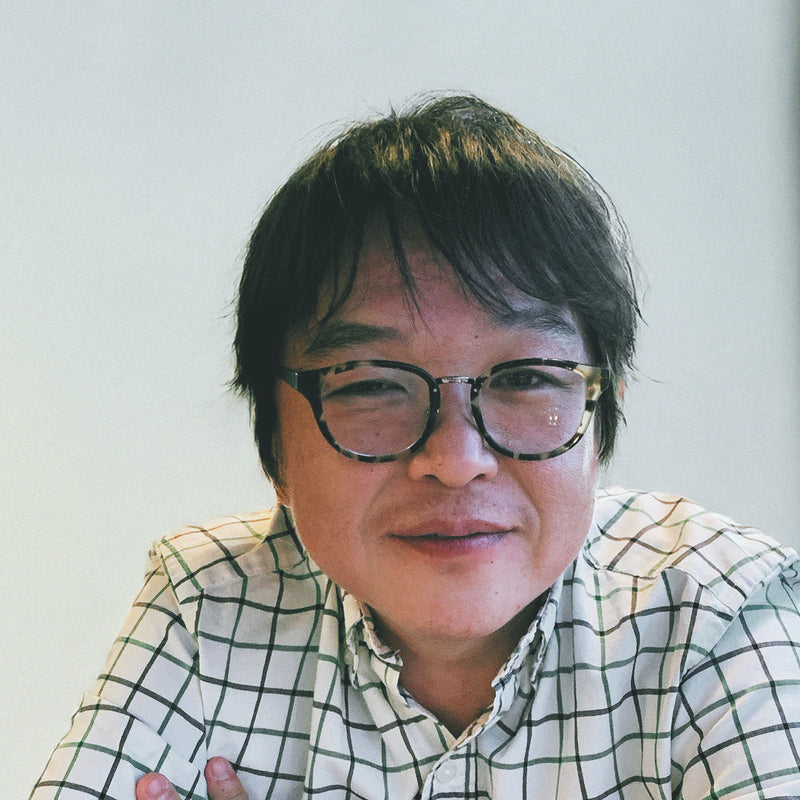Kei answers questions from an interviewer at the International Virtual Tea Festival 2020. Here are the questions Kei answers in the video:
- Could you please tell me more about the Tokoname teapot?
- Does the handle of the teapot get hot?
- Does the clay retain the heat well?
- Is it bad to leave tea in a teapot for too long? The answer is yes, but Kei explains in the video about the exception, which is cold brewing.
Video Script:
- [Interviewer] The teapots that they reference in the video, do you guys sell those?
- Yeah, is it, this one, right? This one you saw?
- [Interviewer] Oh, yeah, that's the one that I saw, yeah.
- Yes we do sell them. This is the teapot that you get, this the size you can see.
- [Interviewer] Okay.
- And actually, and handmade.
- [Interviewer] Oh really?
- As you can see this has a finer mesh filter here. And this is the red clay that I'm talking about in the video.
- [Interviewer] Oh, okay. I thought that was interesting when the in the video, seeing that mesh being bigger in the teapot. I have one tea pot that has a mesh strainer but it kind of looks like a little cup that you just drop into the tea pot.
- Yep.
- [Interviewer] But it's kind of small.
- Yep. And it's kind of like a blind spot that the tealeaves doesn't open up if it's a little wet. So this gives you the gives the tealeaves enough space to open up. And that's main reason for it. And yeah, the mesh is also good because it filters it very well as well. And you already watched the video so you know, but yeah, the clay is really the differentiation. In Japan, it's actually pretty popular. It has been popular historically. But it's not too wellknown in outside of Japan.
- [Interviewer] Okay.
- We have two types. This is the, we've two types, this is another one. It looks a little more modern but it's even it is actually the same Tokoname clay pot even if it looks different. And this one has the, the one that you can detach and it's easier to clean.
- [Interviewer] Right.
- Yeah. So that's the difference between the two and this is the size.
- [Interviewer] Does the handle get really hot?
- Nope, that's the reason why there is a handle, you hold like that and then you usually hold and then pour.
- [Interviewer] Okay.
- Does not get hot this party gets hot.
- [Interviewer] Yeah, my my regular tea pot that I just use for black teason and such, you know, 'cause it has that curved handle because it's just a standard tea pot. Some sometimes my my knuckles will hit the tea pot and it's kind of hot.
- Yes. Yeah, the traditional Yunomi, this is called Yunomi. Usually has this because of the purpose is to keep the teapot cool. And, cool.
- [Interviewer] Does the clay retain the heat better?
- Not really. That's why it gets hot with emitting the heat. So it does not, but usually the Japanese tea, you steep it for about one minute or so. So within that one minute, it does not get too cool, right? It's because it's only one minute. And the best way to do the tea is boil the water all the way to 100 degrees Celsius or boiling point. And then you cool it down to about 85 degrees c. And that technique is called "Yusamashi". What it does is that, first of all by boiling the tea, it removes the chemical component of something like chlorine and stuffs. And then by cooling that down to about 75 degree c, it 75 to 85 degrees is the best temperature for Japanese, most the Japanese tea. And that is how the actual tea is being served and for instance, for the tea ceremony and so forth. That time to wait is kind of like a meditation time as well. You know-
- [Interviewer] Yeah.
- So there is a history about that as well but it's okay for the teapot to emit the heat. But you don't wanna be keeping it for long because you know, especially Japanese tea. It gets pretty bitter if you keep it for like more than five minutes, so.
- [Interviewer] Good to know. Yeah, I've I have accidentally left black tea and so I got distracted and then the next thing you know, I realized, "Oh, it's been in there a little too long!" And it didn't taste good at all.
- Yes. The exception to that is a cold brewing. If you put the water in a tea, like let's see, this is from Hario I don't know if you've seen this. And it has, the filter on the back. Click here of image below to get Hario on Amazon.

- [Interviewer] Ah, okay.
- And and you can do it with a regular jar as well. But you put the cold water and you put the tea probably about this much and leave it overnight. That makes very good cold brewing green tea. And for that it, because it's cold, it doesn't get bitter and it actually tastes very good. So you might want to try cold brewing.
- [Interviewer] Oh, I love that idea because I love, why I love green tea hot but I also love it cold too. I actually find it find it refreshing and I drink more when I have the cold green tea. So some sometimes when I'm working I don't always think to drink water because I get involved in what I'm doing. And then when I start getting dehydrated, I realized that when I drink the the cold green tea, I'm better about drinking it.
- Yep. Even if you don't have it, all you have to do is just filter out with a mesh and when you drink it so you don't need a special equipment. And overnight tends to be about the right timing. So you put it at night and in the morning you have a nice fresh cold brewing tea.
- [Interviewer] So something that sighs if you put the tea in it and then put the water over top and basically put it in the refrigerator, you're filling that whole thing up, right?
- Yep, water all the way here and about this much green tea.
- [Interviewer] Okay.
- In our blog, I have a very specific instruction. There is a measurement probably about this much to this.
- [Interviewer] Okay, okay, good, good, excellent. I like that idea.

Buy Tokoname Teapot (mentioned in the video)
Here are some of Tokoname Yaki you can purchase online from Amazon. I do get a small commission if you purchase from the link below.
Get Free Bonus Books

Sign up for free to the Green Tea Club to get advice and exclusive articles about how to choose Japanese Tea, and tips, tricks, and recipes for enjoying Japanese tea.
About the author
Kei Nishida
Author, CEO Dream of Japan
Certification: PMP, BS in Computer Science
Education: Western Washington University
Kei Nishida is a Japanese green tea enthusiast, a writer, and the founder and CEO of Japanese Green Tea Co., a Dream of Japan Company. His passion for introducing America to the tea of his homeland was the catalyst for creating the only company that brings high-quality tea from Arahataen Green Tea Farms to the rest of the world. Learn more about Kei























